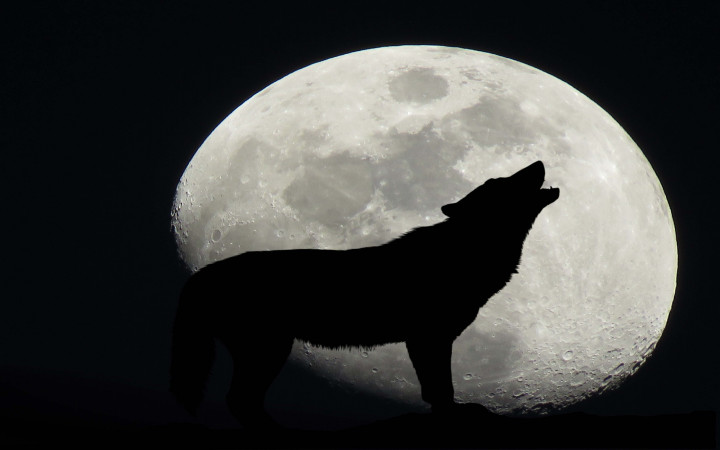Today’s Wonder of the Day was inspired by Gianna. Gianna Wonders, “WHY DO WOLVES HOWL AT THE MOON?” Thanks for WONDERing with us, Gianna!
Picture it: You’re on an evening hike with your family. It’s a cool night, and you stop to drink from your water bottle in the middle of a dense forest. The Sun has dipped below the horizon, and the Moon and stars are rising in the dark sky.
That’s when you hear it. The howl resonates through the night air and makes your spine tingle. A family of birds take flight from the forest floor, and your family talks about heading home as well. You’d rather not meet the wolf you just heard howling at the Moon.
Have you ever WONDERed exactly why wolves howl at the Moon? Well, the truth is, they don’t. It’s a common myth that wolves are more likely to howl during a full moon. However, there’s no evidence linking the behavior to lunar phases.
Still, you’re much more likely to hear a wolf howl at night than during the day. Wolves are nocturnal. They sleep during the day; when the Sun goes down, they move about and hunt. Over the millennia, humans have noticed that they hear wolves howling at night. That’s why we’ve long connected this behavior with the Moon.
If it has nothing to do with lunar phases, then why do wolves howl? There are a few different reasons. Often, wolves howl to tell their pack where to find them. Like dogs, wolves are animals. If they become separated, howling can help them find each other.
Howling also serves a purpose in hunting. If a wolf finds large prey, it may howl to call for help from its pack. Other wolves will recognize the call and come running, hoping to share in the meal.
Finally, wolves sometimes howl as a warning to other canines in their territory. While wolves are , they aren’t too friendly to those outside their pack. If a wolf traveling alone hears the howls of a pack, it knows it has entered their area.
Have you ever seen pictures of wolves howling? If so, you may know they often point their snouts to the sky while doing so. This is another reason many people think wolves howl at the Moon. However, experts say the real purpose is to make the sound carry farther. Their vocalizations can be heard by other wolves up to seven miles away.
Wolves can also tell a lot about each other from listening to howls. They can recognize the howls of others in their pack, of course, but they can also learn a lot about wolves they’ve never met. Their vocalizations communicate information about their size and health.
Have you ever heard a wolf howl at night? Maybe you have a pet dog who howls in response to sirens or other animals. Hearing this sound from a wild animal can be scary—remember to keep your distance from animals you don’t know.
Standards: NGSS.LS1.A, NGSS.LS1.D, NGSS.LS2.D, CCRA.R.1, CCRA.R.2, CCRA.R.4, CCRA.R.10, CCRA.L.1, CCRA.L.2, CCRA.L.3, CCRA.L.6, CCRA.W.2, CCRA.W.4, CCRA.W.7, CCRA.W.9, CCRA.SL.1, CCRFA.SL.2




